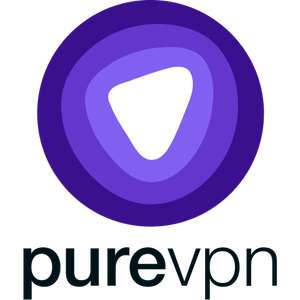

VPN Deals & Offers
15 active deals78,423 commentsAll VPN discounts and offers overview - April 2024

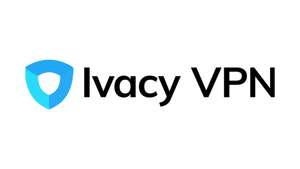
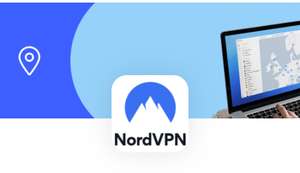


 hotukdeals
hotukdeals hotukdeals
hotukdeals 


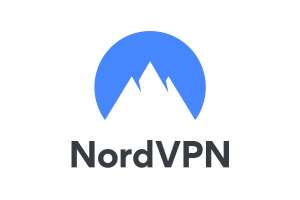






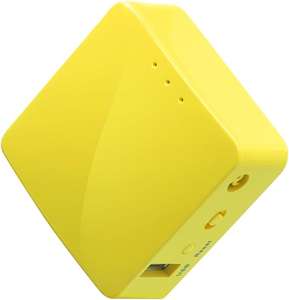
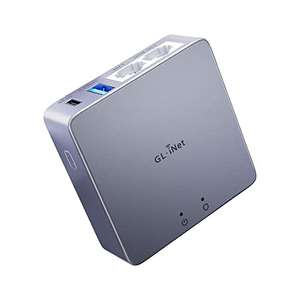











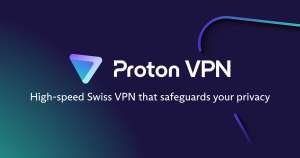
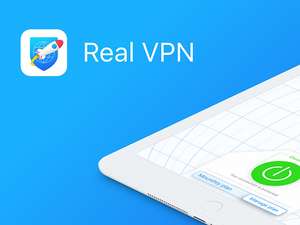

VPNs: Protect Your Privacy and Access The Entire Internet
Virtual Private Networks offer a way to use the internet without being visible to external observers. Through the use of servers located around the world, advanced transfer protocols, and military-grade encryption, good VPNs can render users almost totally undetectable as they use the internet. So it's easy to see why they are becoming so popular in the UK.
However, VPNs vary dramatically in quality, price, and features, making it difficult to choose a provider that meets all of your needs. Don't worry though. This hotukdeals VPN buyer's guide will introduce what buyers need to know, along with ideas about which brands to choose, and how to find a cheap VPN that doesn't compromise on security.
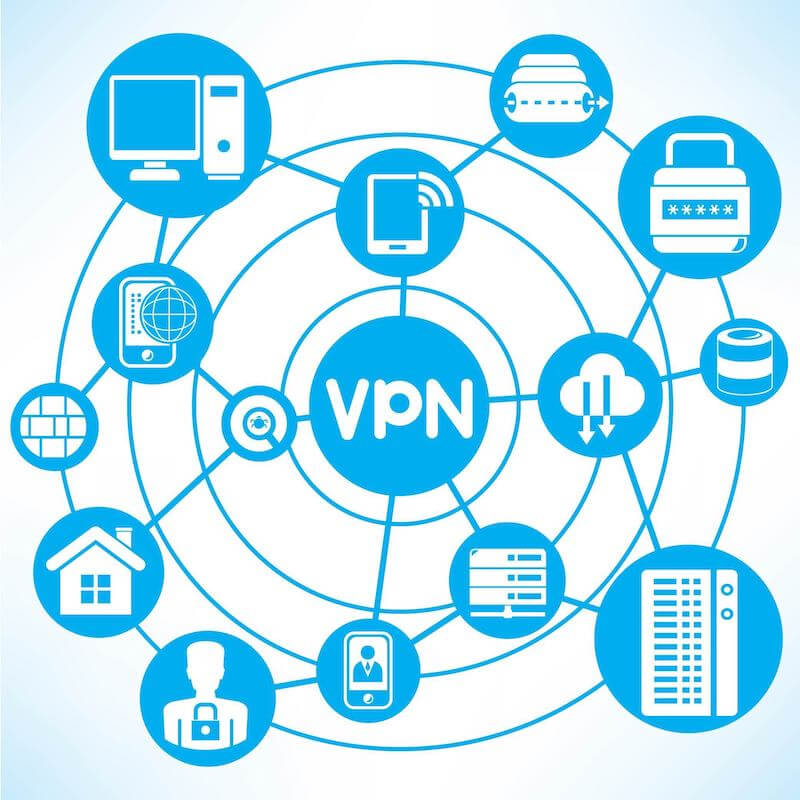
A Quick History of Virtual Private Networks
When the internet first became popular in the late 90s, relatively few people thought about the dangers posed by living their lives online. However, a group of developers had been thinking about these issues for decades, and prototype VPNs were available to use well before the World Wide Web emerged.
Working out of Seattle, a Microsoft team came up with the first Peer to Peer Tunnelling Protocol (PPTP) in 1996. Around about the same time, NASA scientists created a similar protocol called IPSec, which became publicly available in 1995. Both protocols quickly became integrated into VPNs, as businesses sought to create secure connections between offices, and the homes of key employees. The technology took a decade or so to percolate into the consumer market. But as streaming, email, mp3 downloads, and torrenting became more popular, consumer VPNs started to appear (starting with Strong VPN in 2005).
Early VPNs struggled to match the skills of hackers, who could bypass their encryption fairly easily. But as AES-256 encryption started to be implemented, VPNs became more secure – and almost impossible to crack. The software behind elite VPNs also became more widely available thanks to OpenVPN – an open-source codebase including secure protocols, which now forms the basis for many popular providers.
By the 2010s, tech-savvy downloaders were routinely using VPNs to keep their browsing private. And as governments sought to crack down on digital activism, these privacy tools have become famous across the globe, allowing citizens in China, Uganda, Russia, or Saudi Arabia, to express themselves without fear of censorship.
In some ways, this is a golden age for VPNs and digital privacy. But what type and brand of VPN should you choose? Let's look in more detail about what they are, and how they work, to help you make the right decision.
What Are VPNs? A Brief Guide to How They Work
The clue to how VPNs work is in the name. They are “virtual” networks, which impose themselves above the standard infrastructure of the internet, allowing “privacy” for users, whatever they choose to do online. To achieve this, a few things have to be in place:
Encryption – Probably the most important aspect of any VPN, encryption uses cyphers to crunch the data you send, turning it into an unreadable stream of data. Only the VPN knows how to decode this data, and good VPNs switch the “keys” used regularly to jumble up your transmissions. So, no individual will have the means to read your emails or see your download history
Tunnels – When data is encrypted, VPNs send it down what are called “tunnels”. These tunnels are completely virtual and are constructed via tunnelling protocols (like PPTP, which we mentioned earlier). They shield encrypted data packets from outside scrutiny, ensuring that data remains completely secure from your device to the VPN's servers.
Servers – Every VPN uses servers to process data and route it to its destination. These devices manage encryption keys and link together users with target websites, so they need to be extremely efficient. They are also located across the world, allowing users to assume different identities. For instance, UK users can log onto servers in Australia, and “pretend” to be Aussies. As far as websites are concerned, you'll have an Australian IP address, and seem to be located down under.
Clients – At the user end of the VPN, most services are fronted by clients. These applications allow users to log on, choose servers, and toggle things like ports and protocols. If they are well-made, they provide a simple front end that everyone should be able to use.
Why Would You Need a VPN?
Now we know a bit about how VPNs work, what do they actually do, and how can you benefit from them? There are several uses, and more than one could apply to your digital lifestyle:
Unblocking – Nowadays, a fair percentage of web users take their entertainment from Netflix or similar streaming services. However, the content available on these platforms varies from country to country, potentially putting unmissable shows off-limits. A VPN can work around this problem by letting users masquerade as citizens of foreign countries, fooling geofilters into allowing access. This is particularly handy for Brits who travel to Europe and want full access to the BBC iPlayer, and it's also useful for watching YouTube videos that are “blocked in your country”.

Privacy – The original purpose of VPNs was to establish secure connections, and the best providers do this flawlessly. If you work on public wifi networks, you can never be sure that snoopers aren't monitoring your activity (it's very easy to do in most cases). And if you send confidential documents to work or friends, intruders can use what are called “sniffing” tools to steal them. It's a major headache for corporations but applies to pretty much anyone worried about data protection.
Anonymity – VPN users aren't just shielded from spying and criminals. When your traffic is routed through global servers, it is also effectively anonymised, making it impossible for search engines, government agencies, and the websites you visit to know your identity.
Torrenting – If you download torrents or use torrent-based tools like Kodi, VPNs can protect others from seeing what you’re downloading. VPNs are the only tool that can shield your downloading activities, shielding them from companies or governments.
Bargain Hunting – Believe it or not, VPNs can also be used to find better prices for consumer goods and tickets. For instance, many travel booking sites offer variable prices in different countries (or even regions within countries). With a VPN installed, you can circumvent the geo-detection processes used to establish where you are based, and enjoy the cheapest prices available.
What Makes a Great VPN for Home Use?
Not all VPNs are equal. What’s more, many of them make big claims that don't stand up to further scrutiny. So, what are the kind of features users should look for when selecting a VPN to provide privacy and unblocking over the long-term? Here are some core factors to take into account:
Speed – Speed makes a huge difference when using VPNs, particularly if you plan to use a VPN for streaming. Remember, VPNs encrypt and re-route data, which comes with a cost for speed and system resources. Poorly run VPNs can render your web connection almost useless. Look for providers with lots of servers and a reputation for high speeds. It makes a huge difference to the user experience.
Server numbers – Server numbers don't just influence how fast a VPN is. Providers with large numbers of servers tend to offer much more effective unblocking and IP anonymisation services, which lie at the core of what VPNs do.
Leak protection – Always check that a VPN offers rock-solid DNS and IP leak protection. Without this, there's a good chance that your IP address will “leak”, rendering the VPN's privacy protections inoperable. And without DNS protection, your web browsing will be completely transparent.
High level encryption – Sometimes, VPNs try to get away with low-quality encryption (especially free VPNs). Look for “military-grade” AES 256 as the gold standard. Don't settle for anything less, as the channel you’re using to browse can be easily subjected to a brute force hack.
No logging policies – Low-quality VPNs are also notorious for logging the data and movements of their customers, whether that's to meet the requirements of law enforcement or to sell on to marketing companies. Don't fall for this practice. Opt for reliable companies that have clear privacy policies, stating that “zero logs” really does mean zero logs.
Multiple connections – Ideally, a home VPN would allow users to install the client on 5 or more devices, allowing an entire family to protect their browsing. This may not be relevant if you’re only planning to use the VPN on one device, but it’s likely that once you start using VPNs, you’ll want to protect your privacy on all your devices. Good VPNs should offer clients for as many platforms as possible. There should be apps for PCs, Linux, Mac, Android, and iOS phones.
Company Location – When choosing a VPN, it's generally advisable to look outside the “14-eyes” network of countries. Why? Because this group has intelligence-sharing agreements with the USA, which is notoriously keen to crack down and monitor VPN usage. This includes the UK, Germany, France, Australia, and New Zealand. Instead, check out jurisdictions like Panama, the Seychelles, or the British Virgin Islands, where sharing is much less likely to take place.
What Are the Best VPNs on the Market?
As we've discussed already, the quality of VPNs really varies. At worst, VPNs provide less protection than a Windows Firewall and can create a false sense of security in users. But the best providers offer rock-solid protection. Here are a few that won't let you down, and offer very affordable packages.
Norton VPN – Backed by the skills and reputation of one of the world's most famous anti-virus companies, Norton VPN is definitely worth considering. The 10 device package is attractive for student households and small businesses, encryption is superb, while 50% off deals are routinely available.
NordVPN - Usually regarded as the world's number one VPN, Nord VPN is based in Panama, and has an excellent reputation for speed, leak protection, reliability, and support. The client is simple and available for all major platforms, and support is responsive. Updates appear all the time, and customers can pay over 3 years at extremely cheap monthly rates. Most people won't need to look any further.

ExpressVPN – Generally ranked close to NordVPN in global listings, ExpressVPN is a British Virgin Islands-based company which gets pretty much everything right. Speeds may even be slightly faster than Nord VPN, the client is intuitive and accessible, and the 30-day money-back guarantee is as generous as it comes. Well worth checking out.
Turbo VPN – Turbo VPN isn't in the same class as the options listed above, but it's worth mentioning all the same. Available for Android and iOS phones, Turbo is free of charge, which raises a few alarm bells. But as free VPNs go, it's not bad at all. If you need a lightweight, quick option for phones, it's an excellent tool.
How Do Customers Pay for VPNs?
When it comes to choosing a VPN, customers will have the option of going for paid or free providers.
It's important to say a few things about free VPN clients, as they are often the easiest to come by on app libraries or web searches. It’s generally recommended to avoid free VPNs if you’re interested in protecting your privacy. In the VPN world (as well as on the internet at large), the adage “if the product if free, you are the product” almost always applies. Free VPNs tend to hide nasty logging practices in the small print. They won't apply high-level encryption, and they almost always feature plenty of ads (often chosen on the basis of your browsing history).
Paying for a VPN subscription is a far safer and ultimately wiser option. Before opening a subscription, note that most reputable VPNs offer a form of free trial or cancellation period, and it makes sense to take advantage of these deals. Free trials will last a few days or a couple of weeks maximum, and they won't always offer the full selection of servers. But they give a taste for how the client works, and what speeds to expect.
Money-back guarantees are slightly different. In these situations, you'll need to pay for a subscription, then cancel that package if the VPN doesn't deliver what you need. With brands like NordVPN or ExpressVPN, cancellation is simple and hassle-free. But be aware that some providers make cancelling harder than it should be. But if you persist, you'll get there in the end.
When you've found a provider that works for you, the next step is to purchase a subscription. This will usually be over a certain period of time, and terms vary from 1 month to 6 months, 1 year, 18 months, or even 3 years. The best VPN deals will usually last for longer contract terms. You'll find that monthly packages are much more expensive than 3-year deals, and if you're happy with the service provided, there's no real advantage in going for shorter subscriptions.
Some providers offer tiered packages as well. This might provide more simultaneous connections, faster speeds, or additional features like “Double VPN” protection, router installation, and anti-malware scanners. None of that is vital for everyday customers but can benefit small businesses who want affordable privacy solutions.

How to Choose a VPN for Your Phone
So far, we've mainly been talking about how to find VPN offers for desktop computers. But what if you need protection while surfing the web or checking social media on a Samsung Galaxy or an iPhone? In that case, there are a few things to bear in mind.
Ensure that the VPN provider you’re interested in has a dedicated app for Android. Ideally, there should be apps for Oreo and Pie, and a commitment to issue regular updates as the Android environment changes. The usual VPN issues apply, including the need for speed, high server numbers, and high-level encryption. However, when choosing a mobile VPN, protocols can vary. Look for Android clients that use IKEv2 – which is specifically adapted to work with the operating system.
A good tip is to try a few providers and find one with a lightning-fast app. Some software can drain resources, which is a major no-no for smartphone users, particularly for those using older iOS models (we don’t need to tell you how precious battery life can be). Others are streamlined and agile, and you won't notice them after installation.
Finally, be careful about app permissions. Smartphone VPNs can try to fool users into granting expansive permissions to access other apps and log data. They are definitely ones to avoid at all costs, so stay alert during installation procedures. It's easy to grant permissions automatically, without even thinking about it.
How and When to Find Unbeatable VPN Deals
In the future, most of us will need a VPN for some reason, whether it's hiding data from marketing giants, evading cyber-criminals, accessing streaming content, or all of those things. So why not get on board now and protect your data with an affordable, but high-quality VPN purchase?
When making a decision, be very careful. Check VPN comparison sites to weed out imposters that make big promises, but don't deliver. And tick off the features you need to avoid buying packages that are either too basic or too complex.
When you've created a shortlist of options, it's time to go digital bargain hunting. If they want the cheapest VPN UK customers can simply bookmark the hotukdeals VPN listings, and search for the brands they are interested in. All of the biggest VPNs are listed, including NordVPN, CyberGhost, Private Internet Access, and Pure VPN.
Discounts appear all the time, but most sales are time-limited, so customers need to move fast when they become available. Expect the biggest reductions around Cyber Monday in November, but deals will appear all the time. There's no real sale “season” for VPNs, just a stream of temporary discounts.
Protect Your Privacy With a VPN Purchase from hotukdeals
Virtual Private Networks allow users to work around corporate geo-blockers, liberating streaming content from platforms like Netflix. But not all VPNs are equal, and not all offer great value for money. Zero in on the best VPNs at the lowest possible prices by shopping at the hotukdeals VPN listings

